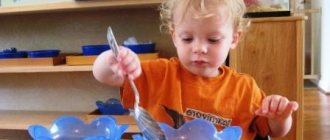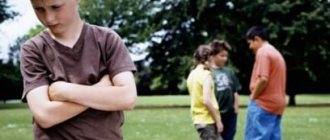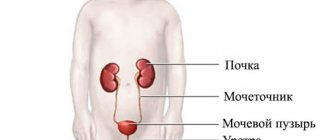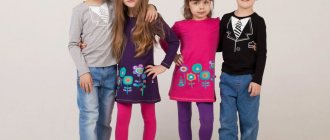Thanks to the large amount of information available in the public domain and the energetic changes taking place on a planetary scale, modern children are reaching adolescence earlier. If in the last century children were considered teenagers starting at the age of thirteen, now this moment occurs at 11 years old. Consequently, the child’s behavior style, manner of communication with parents and friends changes. Mom and dad also need to change their attitude towards the boy in order to raise a real man.
Boy 11 years old: psychology, advice to parents
Girls and women often complain: men do not live up to the ideal of a strong, responsible person who is ready to start a family and raise children. This happens because mothers raise boys using authoritarian methods. The result is an infantile personality, a lazy husband who prefers to lie on the sofa, becomes depressed at the slightest trouble, and reacts emotionally to events.
The age of 11–13 years is not only psychological changes in personality, but also the beginning of physiological changes that affect the psyche. It is important to consider both aspects.
Physiological changes:
- The skeleton and muscles are actively developing. The boy is quickly gaining weight and growing. Such rapid development can lead to limb fractures or injuries, since the growth points are weakened and nutrients are slowly transformed into bone tissue.
- There is a delay in the formation of blood vessels, and the heart may fail because the blood flow to it is limited.
- The production of sex hormones creates contradictions in character. The feeling of being an adult is accompanied by an inconsistency in appearance. It happens the other way around - physiological development outstrips the process of moral maturation. Possible deterioration of memory and attention.
- Increased activity of the sebaceous glands, which provokes skin rashes.
- Excitation processes predominate in the nervous system. If the brain does not have enough oxygen, a teenager can “hibernate” - 8 hours of sleep is catastrophically not enough for him. Coming home from school, he goes to bed.
The construction of the educational process is impossible without taking into account physiological indicators. It is important to understand what an 11-year-old boy feels and experiences - psychology, advice to parents will be individual: the family situation, the way adults communicate with each other, the degree of interest in children's affairs are taken into account.
Psychology of children 11-12 years old
The behavior of children at the beginning of the maturation period deteriorates sharply. There are several explanations for this, taking into account both the purely physiological aspects of hormonal fluctuations and the difficulties of psychological adaptation. It is very easy to lose contact with your child now, which will be difficult to restore later. It is important to prevent this from happening.
All children express themselves in one way or another, argue with their elders, do a lot of things out of spite, get into trouble, make a lot of new acquaintances, argue, and try to prove their independence. There are two negative scenarios for the development of further events. Or relationships between children and adults become strained due to the latter’s reluctance to acknowledge the growth and development of the former. As a result, parents “tighten the screws”, trying to forcefully pacify the disobedient teenager. In this case, the child feels squeezed and limited, and grows up as a rebel, proving his freedoms by any means. The second option assumes a complete absence of parental control, when the child feels like the master of life, to whom everything is allowed. In this case, he becomes an egoist who is not accustomed to taking into account those around him and does not respect his elders and peers. Both options: excessive care and lack of boundaries lead to the development of a model of deviant behavior in children. It will be very difficult to cope with such problems, so it is important to prevent them.
Psychological characteristics of children
This period contributes to the manifestation of the character traits of an adult. To prove his worth, the guy uses aggressive methods of communicating with loved ones. This behavior is typical for families practicing authoritarian methods of education, pressure on the psyche, and coercion. To take his place, the boy is forced to be rude and refuse to cooperate. The opposite cases are withdrawal from communication, alienation, reluctance to talk about one’s problems, depressive behavior.
Emotions are clearly visible. Manifestations of shyness and tightness along with outbursts of anger are possible. Parents need to understand that the child’s desire to grow up is not controlled by consciousness - these are the first tests, attempts to form a personal style of behavior.
The first place is occupied by the opinion of others about the personal merits and abilities of a teenager. Experience in sports and serious interests in subjects helps. It is difficult for a boy to start doing something seriously, so it is advisable to enroll a child in clubs and additional schools earlier, so that by adolescence he already has a stock of skills that will contribute to self-affirmation.
The psychological characteristics of a child at 10 years old depend on his family authority—how interested his relatives are in his achievements and opinion. The slightest remark provokes a violent protest. The best thing parents can do is to turn a blind eye to shortcomings and praise more, even small achievements.
The desire to please girls encourages risky manipulations.
Age 10-11 years
- Children aged 11 are already beginning to feel changes in their bodies. Puberty begins. At this age, children experience sudden mood swings. Emotions come in many different forms. The child laughs and cries.
- He reacts very sharply to any criticism or comments. You never know when he'll explode in anger. Therefore, you need to be very careful in your statements, choosing your words carefully. You should not shout at your child, otherwise he will close in on himself and it will no longer be possible to get a word out of him.
- There may also be problems with your studies. The child enters secondary school. New teachers, new requirements. Each teacher expects increased attention to his subject. Often children simply do not have time to learn everything.
- Therefore, the success of children should be monitored. There is no need to make a lot of demands on them. Also, by this time it is already clear what he has more abilities for. It is important not to miss this moment and push the child in the direction that he likes.
- Eleven-year-old children are spending more and more time with peers. They have many common hobbies and interests. There is no need to limit them in this communication. After all, communication at this stage is important in the sense that children need approval from others like them. Parents no longer play as important a role as before.
- The psychology of an 11-year-old child is not much different from a 10-year-old child. But there is still a difference. It lies in the fact that the first has a more unstable and more vulnerable psyche than the second. And if parents did not establish a trusting relationship before the age of 10, then at 11 it is almost impossible. With the onset of adolescence, the child seems to change. He is irritable, angry and uncontrollable all the time.
- Often he himself does not know what is happening to him. Sudden outbursts of anger at others are replaced by self-hatred. At such moments, you just need to hug the child, even if he is against it. Children do not like to admit their weakness and inequality with adults. Therefore, you need to show more affection and tenderness to such a child.
Read more: How to overcome addiction to tablets and computers?
Features of raising boys and girls
This is the best age for a teenager to improve various skills. It is precisely to improve and acquire them earlier. Many children who start something late expect results to appear immediately, but this does not happen, and they quit what they started without finishing it. Parents can insist and force the child to do certain things in order to show him a state of confidence and professionalism.
If you miss teenage professional development, a man will experience problems in developing himself as a specialist and uncertainty, which will lead to personal and social problems.
The psychology of children at the age of 10–11, boys and girls, is very different. The former still prefer games. Girls think about relationships and love. Changing externally, many experience negative emotions towards themselves.
Adults must clearly understand: they have a direct impact on the boy’s upbringing by their own example. You should consult a professional psychologist or psychotherapist.
There are cases when only the mother is involved in family upbringing. This situation requires balance. The child should be sent to the sports section so that he can see a male example of behavior, preferably worthy. This will help him gain experience with men that he does not get at home.
The main thing, many psychologists and teachers believe, is to learn to listen to your son. Without condemnation, criticism, authoritarianism. This way he will learn to trust adults with his secrets, knowing that he will be understood. Many parents make the mistake of listening to their child’s story and immediately try to impose their opinion and behavior. The result is that he tries to communicate less, spend more time with friends and strangers. Moms don’t understand why this happens, because they love him at home, strangers don’t need him. That’s the point: they don’t teach him there, he’s at peace.
Features 8 years
A child at 8 years old, his psychology is a rather delicate object of study. This is not yet a transitional age, but you should already be especially attentive to changes in the child’s behavior . He no longer asks as many questions as before, becomes more thoughtful, but remains as restless as before.
- Every day he expands his horizons more and more, makes new friends, and finds himself in funny situations. He had already gotten used to the school routine, to the teacher, and had settled into the classroom. Sometimes a boy of this age often resolves conflicts by fighting, but not out of malice. He simply doesn't have the patience to prove he's right. Hot temper at this age is quite natural.
- While the boys prove their point, the eight-year-old girl gradually begins to turn into a small woman. She loves to walk past the mirror, studying her facial features. In addition, she is interested in her mother’s cosmetics, outfits, and high-heeled shoes. The girl dreams of growing up quickly and becoming like her mother.
- Children of this age love to learn; they want to be first in class. Therefore, they are very offended when the teacher asks something other than them. They read a lot, talk a lot. Studying is interesting for such children. They often sit over notebooks.
- The child is active and cheerful. He is interested in all adult activities. Therefore, he can often be seen both with mom in the kitchen and with dad in the garage. He spends a lot of time with his peers. He loves to assert himself at the expense of his parents (“but my dad...”, “but my mother...”).
- Eight-year-old children are very aware of the responsibility of the tasks assigned to them. Even if a mother asks her daughter to simply tidy up the room, she will take on this important task with all her characteristic efficiency. Unlike boys, girls have more attention and patience.
Read more: Psychology of child behavior
Nutritional Features
Protein foods take first place. The child's diet is fermented milk products, vegetables, fruits. If a guy plays sports, he is entitled to increased nutrition. This is due to the growth of tissues of the skeletal system and the cardiovascular system. Lack of nutrients and building materials can lead to weakness. Children are susceptible to fractures because they are actively growing. At the same time, store-bought dairy products do not meet the requirements for nutritional value, since they are not made from whole cow's milk.
Healthy natural food is the key to future health. As the tissues form, they will work for the rest of their lives.
How to develop a child
It is necessary to develop a teenager in two directions - physical and psychological. Parents try to choose a club or sport for their child, and then scold them for failure. Because dad or mom is trying to realize personal unfulfilled dreams with his life - this is prohibited. A person chooses the type of activity himself.
Psychologically, the guy is able to take responsibility for any actions. He can be assigned to take out the trash every day, pick up his younger brother from kindergarten, and put him to bed. This is how a little person is taught discipline and order. If the family does not have clear guidelines, he will quickly get tired and ignore responsibilities, which will affect future family life.
The worst thing on the mother’s part is excessive persistence and unnecessary care. The first case is when a person grows up lacking initiative, timid, and afraid of women. The second is lazy, irresponsible. Both cases of creating a strong family will be unsuccessful, because at a certain moment a woman also needs support. It is situations like this that destroy families.
Classes for children 11-12 years old
It is the everyday knowledge acquired at the beginning of puberty that shapes the child’s personality, his abilities and skills, which he will often use for the rest of his life. After 11 years, children begin to realize their strengths, the uniqueness of their talents and the uniqueness of their personal characteristics. The child develops creativity and creativity, innovative thinking and logic, flexibility of character and resistance to stress.
During puberty, children acquire clear boundaries of their preferences. One chooses a math club, another chooses a sports section, and a third chooses to play the violin. Enrolling in an appropriate club or development group will help develop your abilities.
The child develops his creativity, discovers new talents, desires and aspirations. Younger teenagers are starting to learn foreign languages, and many are showing their organizational skills. It is important not to interfere with children’s search for themselves, to support their endeavors in every possible way, not to scold them for mistakes and failures, and to more often pay attention to what they are doing.
Games for younger teens
To offer an interesting game to a pre-teen child, you need to know his range of interests. You can buy board games - school subjects, business, economics, engineering, architecture.
Of particular interest are kits designed for self-assembly of aircraft, ships, architectural structures, and robots.
As an entertaining and educational activity, a guy can be offered additional education—advanced computer courses, learning foreign languages. The rule is that the child chooses the activity independently. The child must want to do a certain activity. For children who are interested in computers and games, you can offer a club in robotics, programming, and game creation so that the time spent on the laptop is not wasted. In addition, information technology is rapidly developing, so the skills may be useful in the future.
What a child should know
It is advisable to teach the child to make decisions independently and be responsible for their consequences. Voice your opinion carefully.
By adolescence, you need to be able to take care of yourself, your things, and perform hygiene procedures consciously - wash your hands after visiting public places, brush your teeth. It is especially important for athletes to keep their bodies clean, since they are in constant contact with their peers.
There is only one way to teach a child to trust - to trust him. By changing your behavior and reaction, it is possible to change the child’s attitude towards his parents and friends. By openly admitting their mistakes, parents teach the boy to recognize and admit his own.
Children are a mirror of their parents, so the child’s mistakes must be resolved through changes in personal behavior and attitude towards the situation.











